Civil Society Commemorates International Day of the Girl 2023
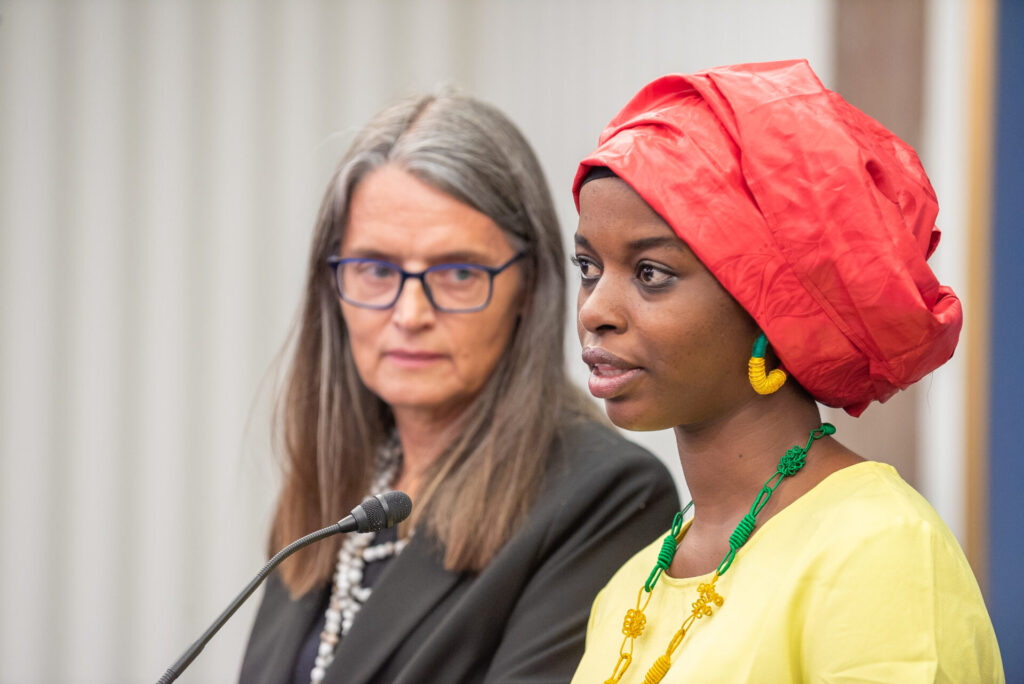
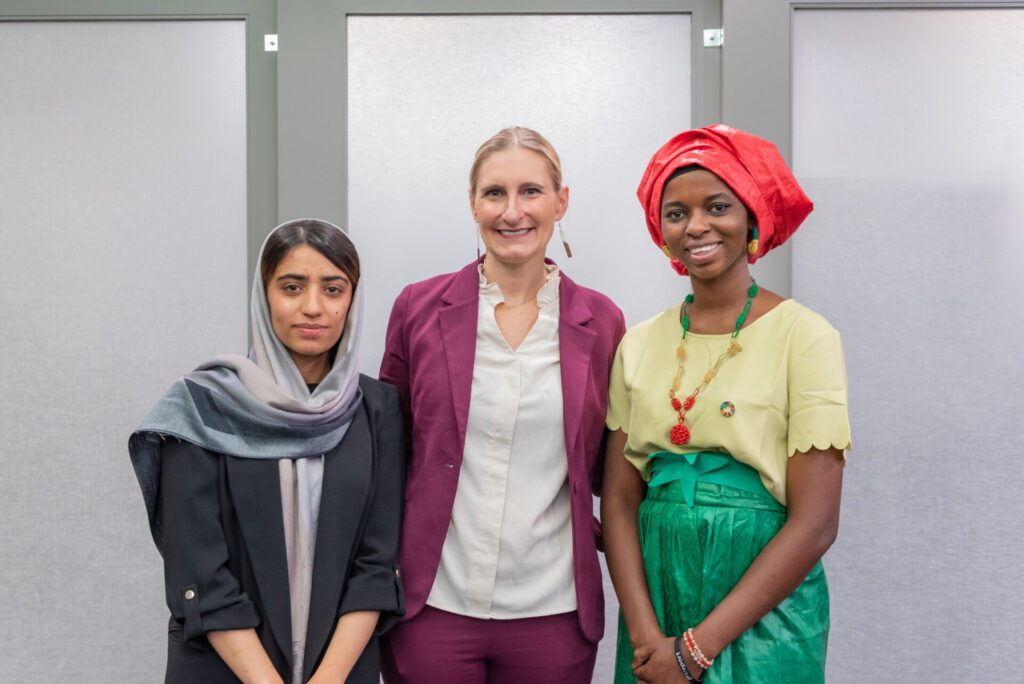
International Day of the Girl (IDG) Child — observed annually on October 11 —recognizes girls’ rights and the unique challenges they face around the world year-round. In 2023, UNICEF USA, InterAction and ChildFund hosted a reception on Capitol Hill highlighting the progress that has been made for girls globally and emphasizing what more needs to be done to support girls.
Rep. Lois Frankel (D-FL) and Rep. Mike Waltz (R-FL) were joined by the U.S. Department of State’s Ambassador-at-Large for Global Women’s Issues, Dr. Geeta Rao Gupta, Somaya Faruqi, a Global Champion for Education Cannot Wait and the former captain of the Afghan Girl Robotics Team, and Adama Diallo, a UNICEF Senegal Youth Advocate against child marriage and female genital mutilation, coordinating over 3,000 members in 103 girls’ clubs around the country.
This event followed White House release of a statement outlining its accomplishments and commitments for girls both at home and abroad.
The statement notes that the administration “is committed to ensuring that girls can pursue their dreams free from discrimination, violence, or intimidation and to advancing the safety, education, health, and wellbeing of girls everywhere.”
These commitments are critical from the U.S. government, the world’s largest donor of foreign aid overall, and to truly make an impact toward meeting established international goals for contributions to women’s empowerment and gender equality, to build upon this commitment. It is clear from reporting to Congress that across administrations, girls are not being prioritized in programs and activities, and that actions taken by agencies such as Peace Corps and MCC are not being captured. A greater emphasis on girl- and youth-led efforts to effect change are also much-needed. Gender inequality and discrimination are cross-cutting issues that put girls at a disadvantage in many areas of their development. Discrimination and harmful social norms disproportionately impact girls over their male peers in several facets of life. One of these areas is education: nearly 1 in 4 girls between the ages of 15 and 19 are neither in education nor training – compared to 1 in 10 boys. Concurrently, hundreds of millions of girls worldwide are subjected to female genital mutilation (FGM) and child marriage, internationally recognized human rights violations that negatively impact girl’s physical and mental well-being.
A recent analysis of U.S. efforts implementing the U.S. Global Strategy to Empower Adolescent Girls found that the Strategy is not being utilized by U.S. government agencies, its diplomats or implementing organizations to the degree that it was intended to be.
Government leaders and girls themselves must come together to ensure girls are healthy, educated, protected and respected.
Ambassador-at-Large for Global Women’s Issues, Dr. Geeta Rao Gupta spoke about the adversity girls worldwide face every day, noting that more than 200 million girls have undergone genital mutilation or cutting, more than all the women and girls living in the U.S. today. She stressed that the U.S. Government considers preventing and responding to gender-based violence a strategic imperative.
“Despite the odds, girls continue to see themselves as leaders,” Dr. Gupta said.
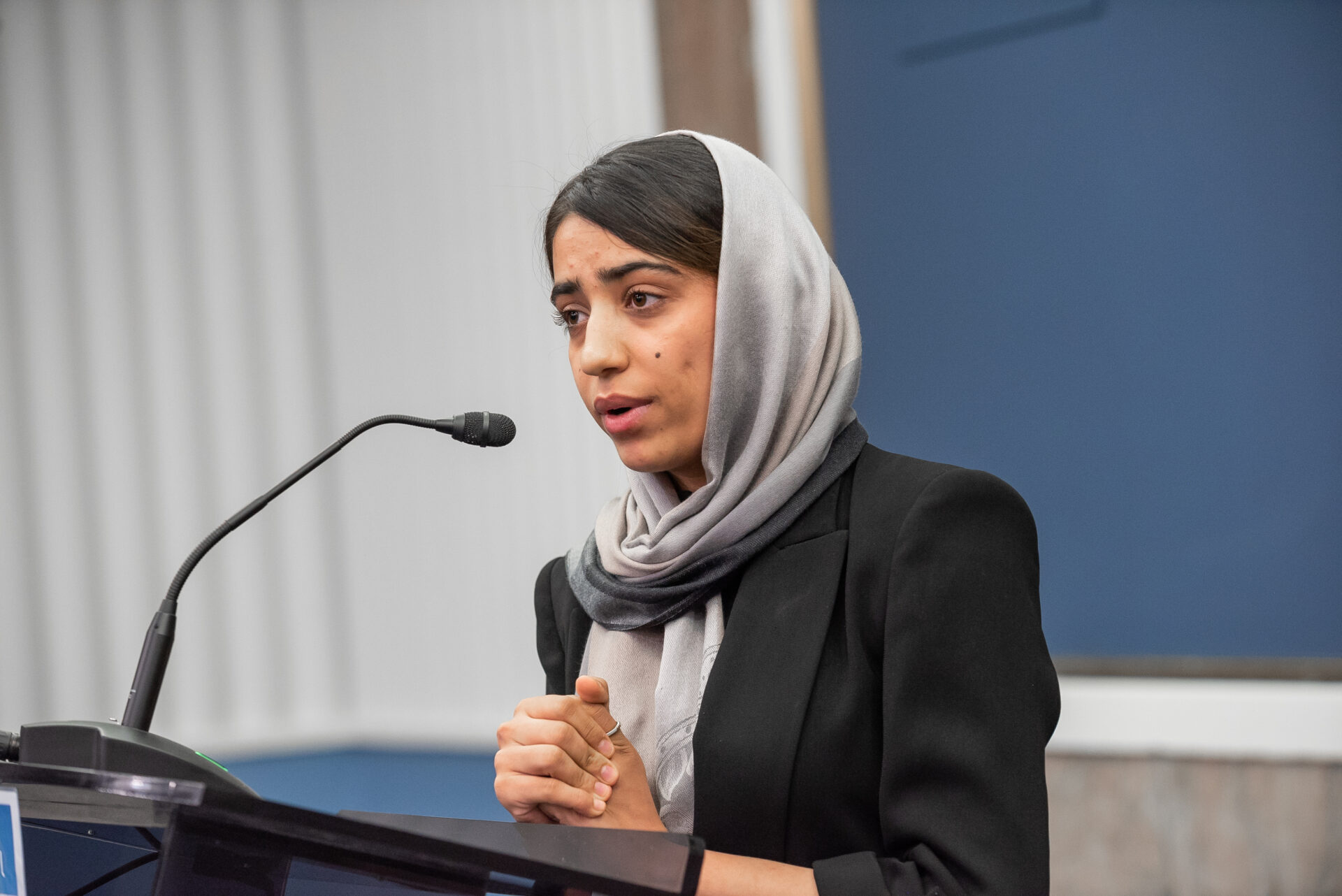
Somaya
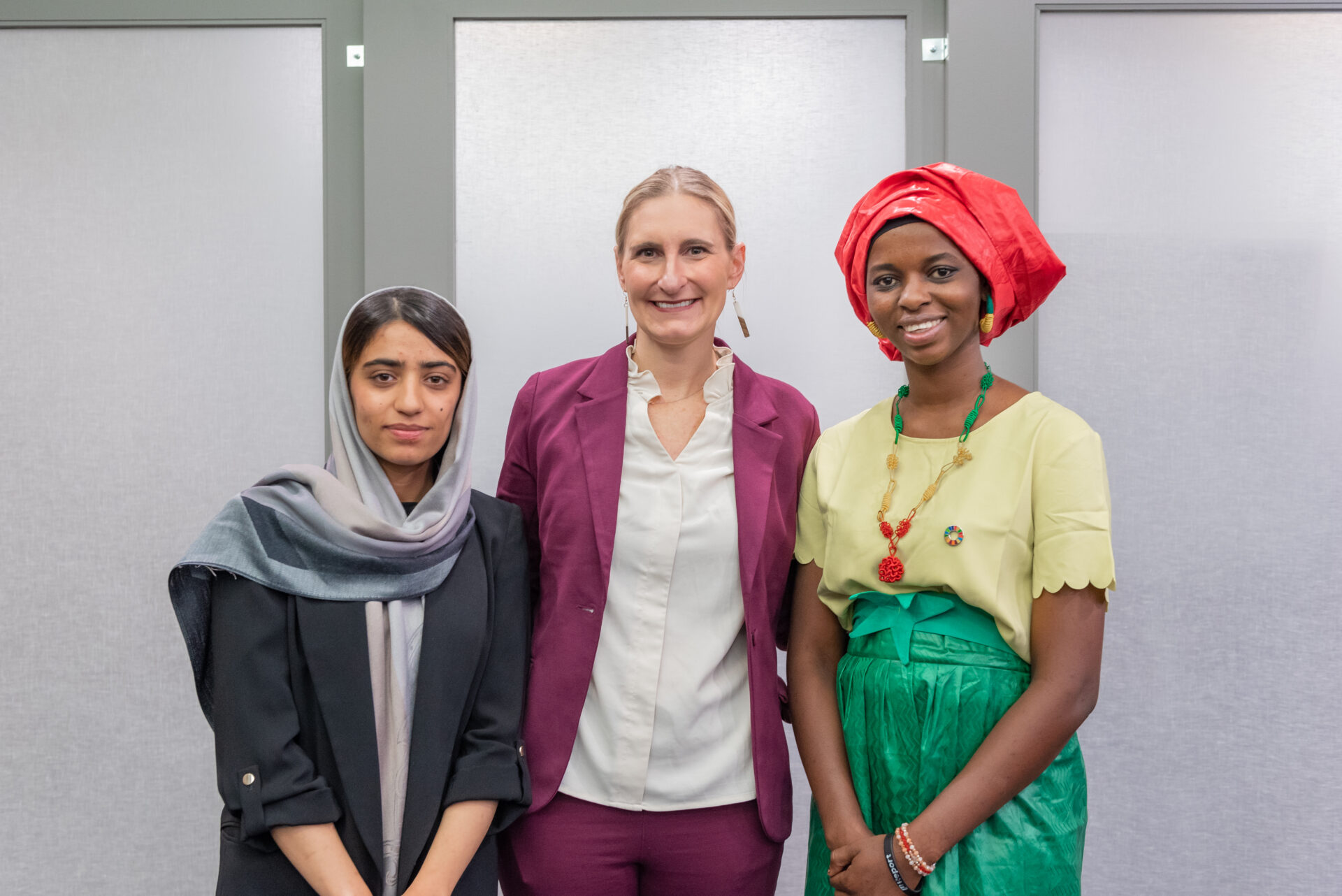
Somaya, Adama and Erin Kennedy

Rep. Mike Waltz (R-FL)
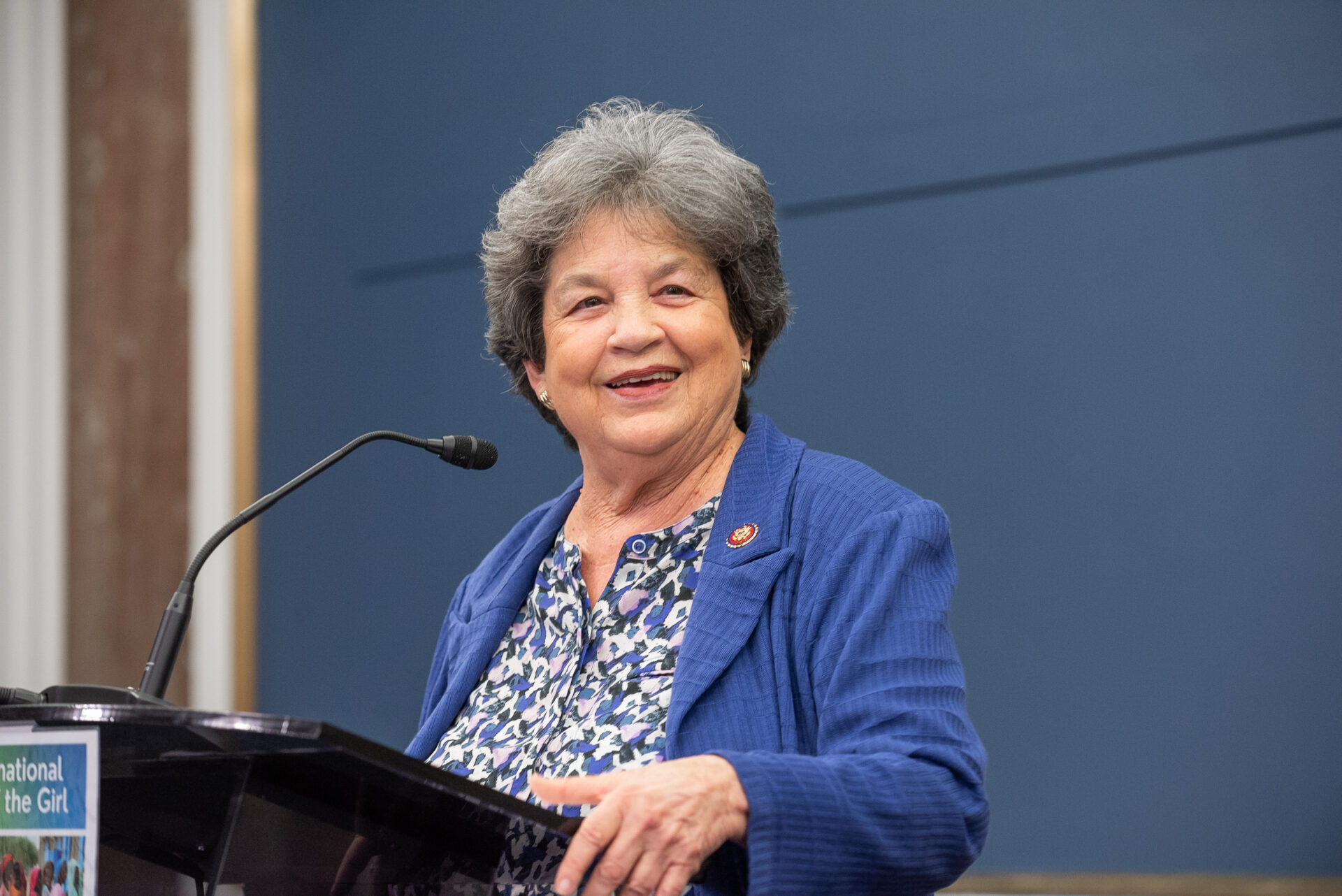
Representative Frankel
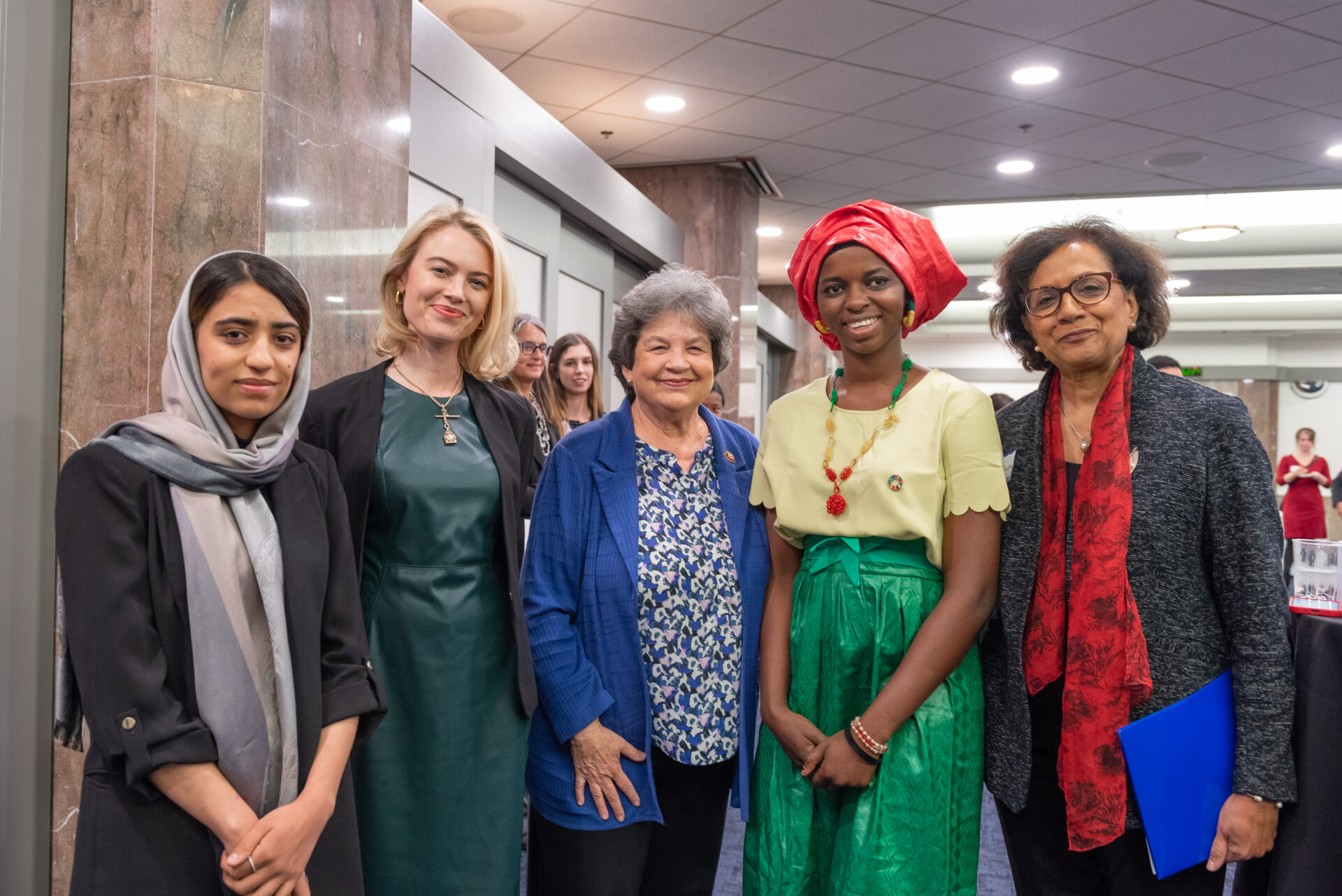
Rep. Frankel, Amb. Gupta with Adama and Somaya

Ambassador Geeta Rao Gupta
One of those leaders, Somaya Faruqi, 21, is a Global Champion for Education Cannot Wait and the former captain of the Afghan Girl Robotics Team. Now pursuing her engineering degree in the United States, Somaya emphasized, “Education is a human right that can’t be negotiated.” She urged the audience to contribute to efforts to fund girls’ education, especially for refugees and emphasized the importance of including women in the decision-making process. Somaya feels a deep sense of responsibility to shine a light on the harsh realities faced by 222 million children worldwide, especially for the more than one million girls in Afghanistan who currently do not have access to education at all.
“We must work together, not just stand in solidarity, because solidarity without action means nothing,” Somaya said.
Adama Diallo, a UNICEF Senegal Youth Advocate against child marriage and female genital mutilation, coordinates over 3,000 members in 103 girls’ clubs around the country. In Senegal, 1 in 3 girls are married before the age of 18, and 1 in 4 girls and women have undergone FGM; in the south of the country, a striking 8 out of 10 girls and women have been subjected to the practice. With the support of the UNFPA and UNICEF Joint Programme for the elimination of FGM, she and girls’ clubs across the country have been able to empower girls on issues relating to health and gender-based violence.
Rep. Lois Frankel (D-FL) and Rep. Mike Waltz (R-FL), both champions of Women, Peace and Security (WPS), and girls’ education spoke passionately about investing in girls. Rep. Waltz recalled his time serving as a green beret in Afghanistan where he met an Afghan elder who introduced him to his “secret weapons” — his daughters. In her remarks, Rep. Frankel emphasized the importance of creating opportunities for girls, especially in education, and echoed that FGM practices are harmful and deepen the challenges girls face.
In a world where children are increasingly affected by the impact of compounding crises – yet never to blame for them – this event reiterated how critical it is for governments and organizations to work together for girls’ empowerment. Take it from Adama:
“I urge you all to demonstrate an unwavering commitment to this cause,” she said. “We must continue our efforts to raise awareness, educate and support affected communities. Together, we can change mindsets, put an end to dangerous practices, and offer girls…a future full of hope and potential.”
The U.S. government’s leadership and support for girls is critical as they seek to overcome barriers and gain access to things like quality education, avoid early and forced marriage and female genital mutilation/cutting and to thrive as their fullest selves.We are eager to see more from the U.S. government representatives who spoke at this event, and are calling on others within the U.S. government to continue prioritizing girls around the world, on International Day of the Girl and on every day thereafter.
With contributions from Cade McAllister, UNICEF USA and Rachel Clement, ChildFund.